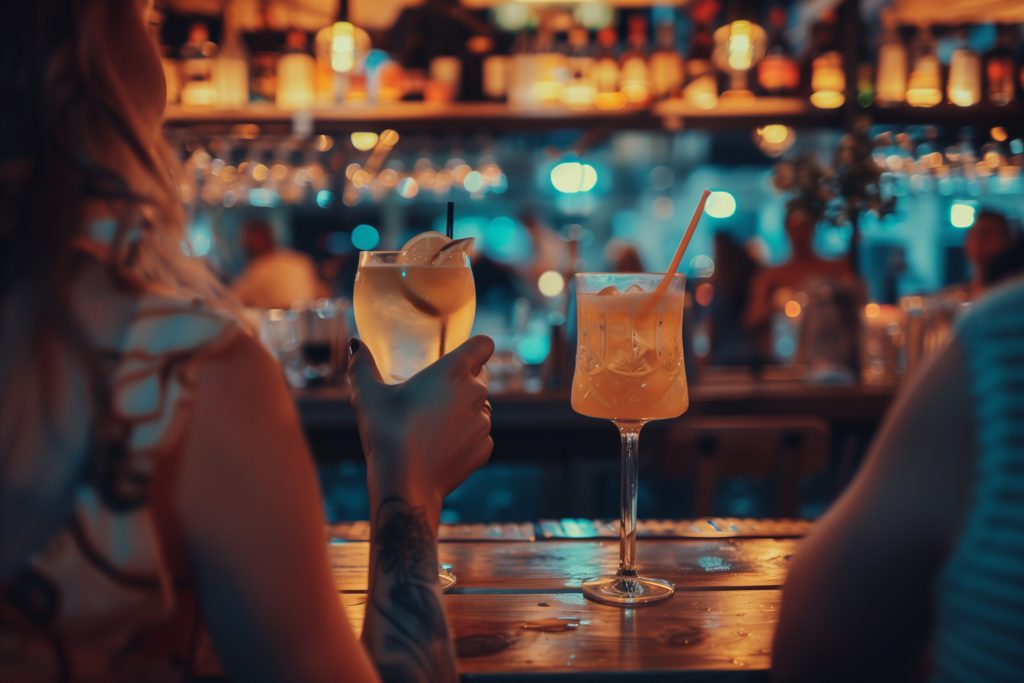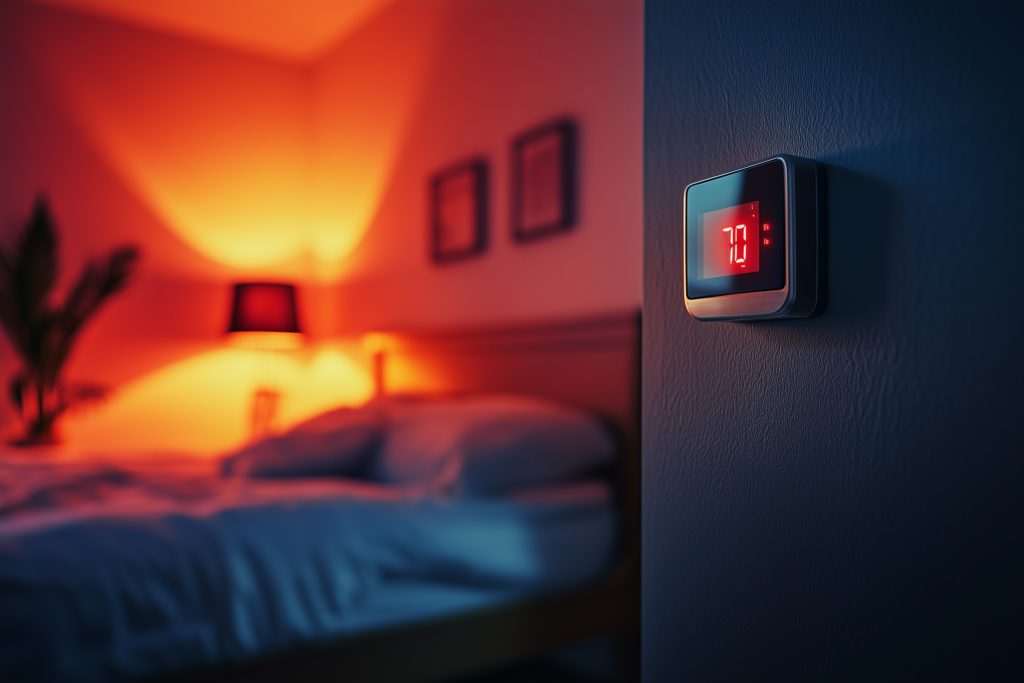
Is Your Diet Affecting Your Sleep?
Scientific research has found a clear link between diet and sleep. Certain foods are associated with better sleep, while a diet high in saturated fat, caffeine, and spicy foods can disrupt sleep.

Your diet affects more than just your weight. It can also impact your sleep. Whether or not you get enough sleep depends on more than just what time you set your alarm for or how comfortable your mattress is. You might have the optimal bedtime routine but aren’t getting enough sleep because of what you eat. The foods and drinks that you fuel your body with play an important role on your sleep.
It’s probably no surprise that having an espresso after dinner will disrupt your sleep. But, many other foods can affect your slumber, as well. Generally, a balanced diet rich in nutrients that is healthy positively impacts brain health and sleep. The nutrients we get from food are the building blocks for proteins and minerals that are needed to create amino acids that are involved in sleep. Your best bet when it comes to eating for good sleep is to focus on eating healthy — and not skipping meals.
What’s the Best Diet for Sleep?
There’s been plenty of research on the link between a Mediterranean-style diet and sleep. One study, published in the journal Sleep, analyzed the connection between how well a person adhered to a Mediterranean diet and their sleep. It was found that those who followed this diet had decreased insomnia symptoms and a better quality of sleep overall. Mediterranean diets tend to be rich in melatonin, vitamin D, and serotonin — all of which play a role in sleep. A Mediterranean diet includes plenty of:
- Plant foods and vegetables
- Fruits
- Legumes
- Seeds
- Fish
- Whole grains
- Healthy oils (olive)
- Dairy
These diets have low intakes of refined carbohydrates, alcohol, and red meat. There also tends to be a low intake of saturated fat and a high intake of fiber. Studies have found that diets high in fiber promote healthy sleep.
Studies also suggest that following a high-protein diet can be helpful for sleep. A recent study conducted by researchers at Harvard Medical School found that higher concentrations of protein in the stomach can boost the release of a peptide called CCHamide1 (CCHa1), which promotes deeper sleep with fewer awakenings during the night. Another study found that fiber-rich foods – especially those high in the sleep-inducing amino acid tryptophan – like oatmeal and beans, are also associated with higher-quality sleep.
Besides following a Mediterranean or high-protein diet, it can be helpful to eat foods high in melatonin for healthier sleep. Melatonin is a hormone that is naturally produced by the body. It helps regulate the body’s sleep-wake cycle. It’s found in some foods, as well as supplements. Foods naturally high in melatonin include:
- Tart cherries
- Goji berries
- Kiwis
- Milk
- Pistachios
- Almonds
- Fish
Foods To Avoid for Better Sleep
Many foods, especially comfort ones, like fried chicken, can be detrimental to sleep. Here are the foods that could be keeping you awake at night — especially if you eat them too close to bedtime.
Caffeine
Caffeine is a stimulant, meaning it makes you feel more energized and awake. However, caffeine also makes it harder to fall asleep. That's because it blocks adenosine, the hormone that promotes sleepiness. Caffeine can stay in the bloodstream for up to six hours. Therefore, it’s a good idea to stop drinking it at least six hours before bedtime.
Saturated Fats
Studies have shown that saturated fats, such as those found in processed and fried foods, can cause you to get less slow-wave or deep sleep. This type of sleep is restorative and helps you recover from the day.
Additionally, meals high in saturated fats are harder to digest, which can lead to discomfort that can keep you awake.
Alcohol
Yes, a glass of wine may help you fall asleep faster initially. But, most experts agree that alcohol disturbs the quality of sleep. It shortens the amount of rapid eye movement or REM sleep that you get and leads to more awakenings during the night. That’s why you wake up feeling unrefreshed and tired after a night of drinking.
Spicy Foods
Eating buffalo wings and other spicy foods close to bedtime can keep you awake. These foods are known to cause acid reflux and heartburn. When you lie down to sleep, it can trigger acid to travel from the stomach back into the esophagus. This can lead to chest or esophagus pain, nausea, and a sore throat.
In addition, in one study, it was found that eating spicy foods before bed causes an elevation of core body temperature, which can make it harder to fall asleep.
Diet and Sleep: Other Things To Keep in Mind
Not only can eating the wrong foods keep you awake, but many other diet-related factors can throw off your sleep, including eating the wrong foods at the wrong time.
- Meal timing matters - Eat dinner at least three hours before bedtime. Eating large amounts of food too close to bedtime will throw off your sleep. There is evidence that eating late interferes with our circadian rhythm (24-hour clock).
- If you have a snack before bed, avoid desserts - A light healthy snack before bed can be okay. However, eating foods like cookies, ice cream, and cake before bedtime can cause your blood sugar to rise and then crash. This can disrupt your sleep.
- Don’t overeat - Do you find yourself eating, even if you are not hungry? Consistently overeating can lead to weight gain, which is a strong risk factor for obstructive sleep apnea (OSA).
- Stay hydrated - Being dehydrated can disrupt your sleep. When you are dehydrated, it dries out your nasal passages and mouth, both of which can increase snoring and prevent you from getting restorative sleep. Dehydration also increases the risk of restless legs syndrome (RLS), a condition that causes irritating leg movements while you are trying to sleep. However, avoid drinking too much water right before bed. Instead, stay well-hydrated throughout the day.
Getting enough quality sleep is important for good mental and physical health. Craving better sleep? What you eat can impact your sleep. Following the dietary tips above can help you get a better night’s rest.
FAQ
Can intermittent fasting improve sleep quality?
Yes, intermittent fasting may help regulate circadian rhythms by promoting a more consistent sleep-wake cycle. However, fasting too close to bedtime can cause hunger-related wakefulness, potentially disrupting sleep. Timing meals earlier in the evening may support better sleep.
Does eating dairy before bed help or hurt sleep?
Dairy contains tryptophan and calcium, which promote relaxation and sleep. However, for individuals with lactose intolerance or dairy sensitivities, consuming dairy before bed may cause bloating, discomfort, or acid reflux, leading to sleep disturbances.
Can eating too much protein before bed affect sleep?
While protein supports muscle repair and growth, consuming excessive amounts before bed may lead to digestive discomfort and increased metabolic activity, making it harder to fall asleep. A balanced intake with healthy fats and carbs may be more beneficial.
Do processed foods contribute to poor sleep?
Yes, processed foods high in sugar, sodium, and unhealthy fats can lead to inflammation, blood sugar fluctuations, and increased cortisol levels, all of which can negatively impact sleep quality and duration.
Can artificial sweeteners impact sleep quality?
Yes, some artificial sweeteners, such as aspartame and sucralose, may disrupt sleep by affecting neurotransmitter activity or causing digestive discomfort.
How does iron deficiency affect sleep?
Iron deficiency is linked to restless leg syndrome (RLS), which causes uncomfortable leg sensations that disrupt sleep. Low iron levels can also impair oxygen circulation, leading to fatigue and fragmented sleep. Eating iron-rich foods like spinach and red meat may help.
Can a plant-based diet improve sleep quality?
A well-balanced plant-based diet high in fiber, magnesium, and antioxidants may promote better sleep. However, deficiencies in certain nutrients like vitamin B12 or iron, common in plant-based diets, can contribute to fatigue and disrupted sleep if not properly managed.

Written by
Emily Mendez
Emily Mendez is a former therapist and mental health author. She is one of the leading voices in mental health. Emily's writing has appeared in eCounseling, SonderMind, and more. Emily is frequently interviewed by Healthline, Fatherly, INSIDER, Family Circle, and other national media for her advice and expert opinion on the latest mental health topics.
Download Pillow
Get help
Press & News
Legal
Connect
X (Twitter)
Company
Copyright © Neybox Digital Ltd.



